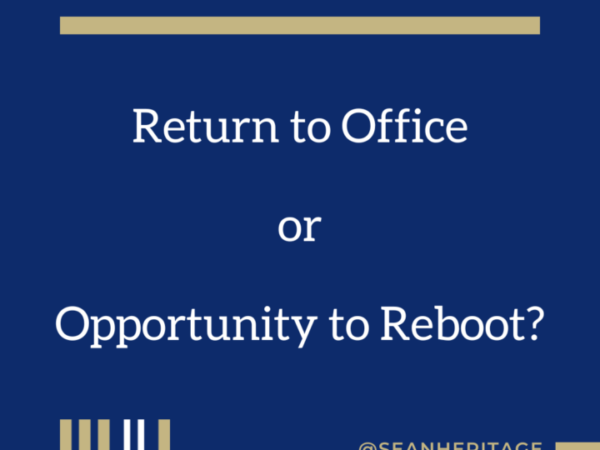I recently had the privilege of hosting a mentorship session for a few dozen junior officers here in Maryland. We talked about many things ranging from their specific questions to my books, to different philosophies shared across the group. It was a very enjoyable two hours and served as the work-related highlight of my week. I left the session feeling even stronger about the thoughtful leaders that would eventually be replacing me, my peers, and my seniors. I also had an appreciation for the fact that more than a few have a tremendous amount to learn and a strong desire to do just that. A couple of Officers stayed behind to talk about some specific issues and I thoroughly enjoyed conversing about both their concerns and experiences. One of the things about which we spoke was what I will characterize as doers, leaders, and the transition between.
Over the course of my career, I have continually experienced, that not all doers are effective leaders and not all leaders can effectively do. I have also grown to appreciate that a leaders effectiveness decreases as their doing increases. On the flip side, the more effective the doers are at leading, the more the team achieves. Personally, I believe that it is much easier to know what to do than it is to lead others in the execution of the doing, which is why I enjoy the challenge of leading so much more. In fact, I believe that the best leaders with whom I have served don’t do much…they lead plenty.
As leaders, our responsibility is not to do, but to leverage the expertise across our team and to partner with other leaders beyond our team. Our responsibility is to shape/enable the doing of the collective. It might sound odd on the surface, but the more we are doing, the less we are leading. Real leaders do very little, but they most certainly do lead. As I see my seniors doing more, it becomes increasingly clear that they are not interested in leading, that they are not trusting the doers, and they are neither helping us to develop nor accomplish the mission in their absence. When the leaders are doing, who is doing the leading? The leaders I admire most invest in the development of those around them, they enable the team to accomplish the mission, and they develop themselves with the objective of growing into the leaders their team deserves.
As I think more about the need for leaders to lead more and do less, I can’t help but think that too many believe that leadership development just happens. It doesn’t. The transition from Doer to Leader must be deliberate if it is to happen at all. Leaders are developed through the interest taken in us by mentors, through the readings we do, through the experiments from which we learn, and through the partnerships we create. Some Doers never make the transition despite their being assigned to a position of leadership. Take a look at your leaders. Are they mired in the doing or are they providing you with strategic guidance? Are they building slides or are they removing obstacles on your behalf? Are they analyzing spreadsheets or are they partnering with stakeholders beyond the organization? Are they satisfying the tasking their seniors levy on them or are they informing their seniors of where they are taking the team?
The Junior Officers who made up the audience on this specific day consisted of both Doers and Leaders. It was clear that some were going to have trouble with the evolution from one to the other, while others were already well on their way. Though I don’t necessarily agree with the adage, I have heard it said that “those who can, do; those who can’t, teach.” What corollary might you write when it comes to doers and leaders?
Leaders, please consider doing less, so the team can achieve more. Doers, please ensure you are doing your part.
- How might Leaders help the Doers?
- How might Doers help the Leaders?
- How might you help the Doers grow into Leaders?


